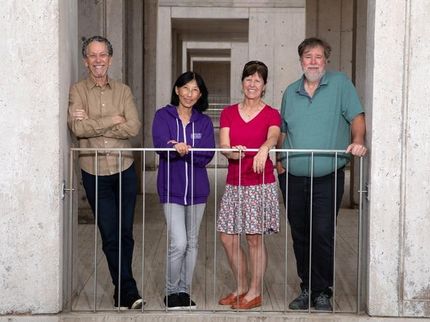Breakthrough: Gut bacteria drive growth of stem cells in colon cancer
Advertisement
Colon cancer is one of the most common forms of cancer in Germany. Prof. Dr. med. Sebastian Zeißig, group leader at the DFG Research Center for Regenerative Therapies Dresden (CRTD) - Cluster of Excellence at the TU Dresden and physician at the Department of Medicine I, University Hospital Carl Gustav Carus Dresden, has now shown a decisive role of gut bacteria in the regulation of intestinal stem cells and the development of colon cancer. This discovery promises new therapies not only for cancer but for promoting regeneration of the intestine, for example after chemotherapy.
The intestinal surface is a rapidly renewing tissue, whose regeneration is driven by stem cells. Damage of these intestinal stem cells, as observed upon chemotherapy, leads to impaired regeneration of the intestine and severe illness. On the other hand, genetic mutations that further promote the growth of intestinal stem cells are associated with uncontrolled organ regeneration and the development of colon cancer. Tight control of intestinal stem cells is therefore required to allow for regeneration but to prevent cancer.
Sebastian Zeißig’s group has now demonstrated that bacteria within the normal gut microbiota can invade the intestinal tissue and activate an enzyme in stem cells that facilitates stem cell growth and cancer development. This discovery could form the basis of novel therapies for the prevention and treatment of colon cancer. “In the future, bacteria engineered to block these pathways could potentially be used as probiotics which act in local manner in the intestine to inhibit the growth of colon cancer and to perhaps even prevent its development”, says Sebastian Zeißig. Since stem cells are also critical for regeneration in the intestine, therapies that target these pathways may further help to design new drugs that reduce side effects associated with chemotherapy, radiotherapy or other causes of intestinal damage.
With his research group at the CRTD, Zeißig has already started to engineer intestinal bacteria with the goal of influencing regeneration and cancer development in the intestine. Zeißig, who is also a practicing physician at the Department of Medicine I, University Hospital Carl Gustav Carus Dresden, adds “With its focus on stem cell biology and a close link to clinical medicine, the CRTD indeed offers a unique environment for physician scientists to develop new treatments for regenerative medicine and cancer therapy.”

























































